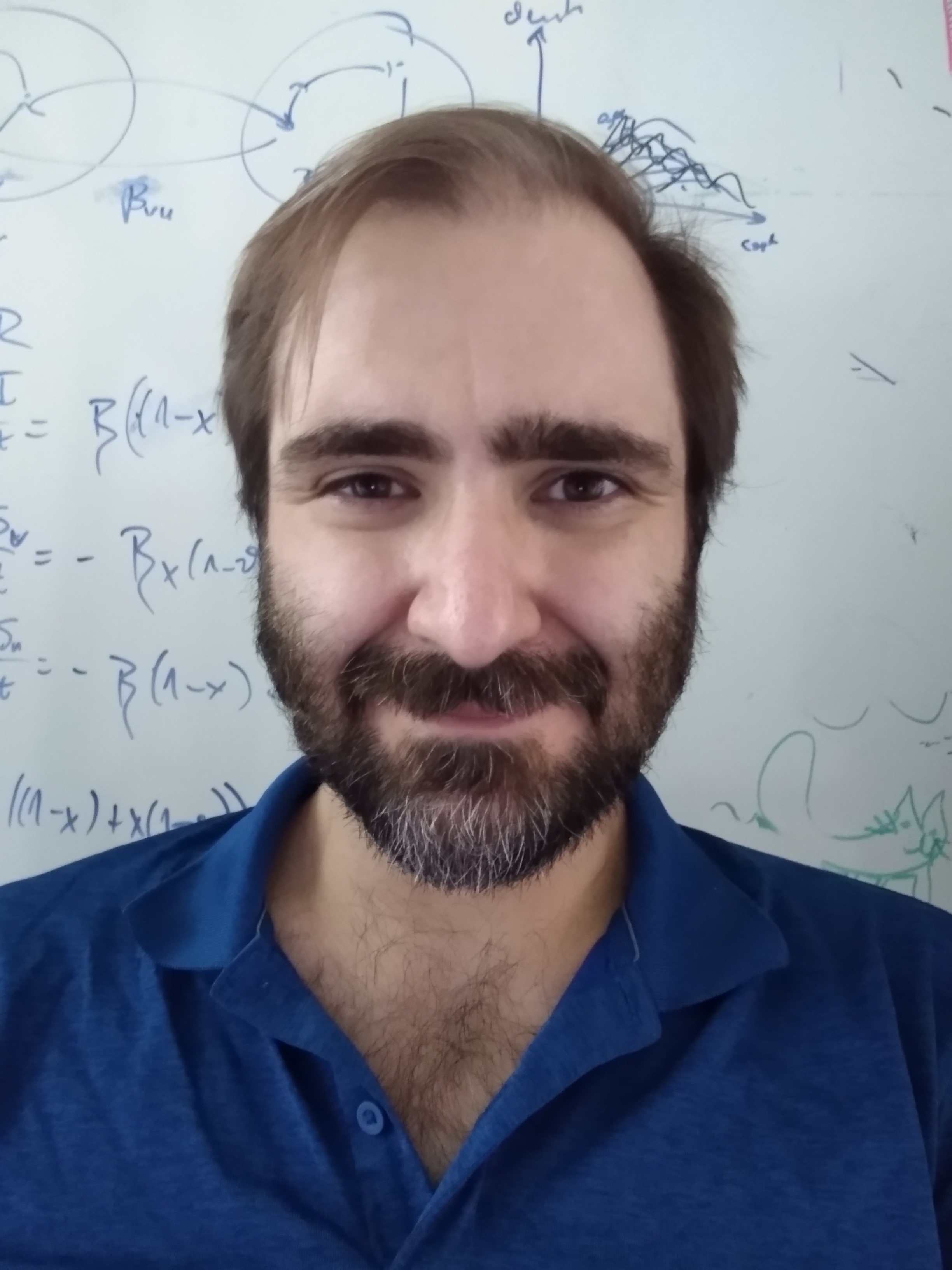UROP Project
disease, ecology, evolution, game theory, mathematical biology, social norms

Research Mentor: Bryce Morsky,
Department, College, Affiliation: Mathematics, Arts and Sciences
Contact Email: bmorsky@fsu.edu
Research Assistant Supervisor (if different from mentor):
Research Assistant Supervisor Email:
Faculty Collaborators:
Faculty Collaborators Email:
Department, College, Affiliation: Mathematics, Arts and Sciences
Contact Email: bmorsky@fsu.edu
Research Assistant Supervisor (if different from mentor):
Research Assistant Supervisor Email:
Faculty Collaborators:
Faculty Collaborators Email:
Looking for Research Assistants: Yes
Number of Research Assistants: 2
Relevant Majors: Open to all majors with skills in mathematics
Project Location: On FSU Main Campus
Research Assistant Transportation Required: Remote or In-person: Partially Remote
Approximate Weekly Hours: 10,
Roundtable Times and Zoom Link:
Number of Research Assistants: 2
Relevant Majors: Open to all majors with skills in mathematics
Project Location: On FSU Main Campus
Research Assistant Transportation Required: Remote or In-person: Partially Remote
Approximate Weekly Hours: 10,
Roundtable Times and Zoom Link:
Project Description
My research program has been primarily concerned with understanding biological and social systems through mathematical modelling. I am interested in understanding questions in theoretical ecology and evolution from the general to the specific. Additionally, much of my work focuses on sociality in a variety of settings, such as cancer, infectious diseases, and human communities. Sociality has many roles in nature from explaining multicellularity to civilization. Cooperation is important for the acquisition of resources for tumours, and for the establishment of effective herd immunity from vaccination. The research project is to study such a system in a game theoretic framework that features social dilemmas, where the socially optimal state is untenable due to individual selfishness. We will be interested in cases where social dilemmas arise, how they arise, and how they may be ameliorated.The specific subject is to be decided with the mentee, but can include: public goods games among microbes, behaviour during an epidemic, social finance, and social norms and the evolution of human cooperation. We will couple a biological/economic/physical system with a social dynamic in a mathematical model, and then study the impact of the social behaviour on that system. The model may be a system of differential equations or an agent-based model, depending on the students' skills and interests.
Consider altruism in the ecology of cancer and bacteria as examples. Cancer and bacteria can produce public goods that are prone to being taken advantage of by free-riders. Examples include angiogenic factors in tumours, and siderophore production in bacteria. Because cheaters do not pay the cost of production of these goods, they have more energy to compete against altruists. There are several questions that arise from this social dilemma: how can altruists survive with competing cheaters? What role do cheaters play within the infection? If altruists and cheaters can coexist, how do they interact and evolve? How can we use our understanding of cooperation in this system to better treat disease?
Another example is the spread of pathogens in human populations, which crucially depends on social, political, psychological, and economic factors. Behavioural factors may promote or inhibit the spread of disease, and thus have implications for public policy. Events of the past few years have demonstrated with unusual force how critical the interactions between social and epidemiological dynamics are to controlling disease, and how much we still have to learn about them. Examples of the role of behaviour in epidemiology include: social distancing during the COVID-19 pandemic; emergence of MRSA from antibiotic overuse; burial traditions and the spread of Ebola; and anti-vaccination movements. Such behaviour is often influenced by social norms, which help determine the expectations individuals have on both what others will do and what they should do and thereby guide personal decision making. How does this affect the trajectory of an epidemic, and what public policies should be recommended to mitigate the spread of disease? Other types of contagion outside of disease can also be studied in this framework.
Research Tasks: conduct research, develop code, literature review, mathematical analysis, mathematical modelling, writing
Skills that research assistant(s) may need: Required: Calc 1, 2, & 3, ODEs, linear algebra, coding (any language)
Mentoring Philosophy
Learning biological and social theory is an exciting endeavour, and mathematics plays an integral role, which many students are unaware of. I am excited to introduce this fact to my students. For students coming from other fields, it provides motivation for learning the mathematics. And, for students more knowledgeable about mathematics, it provides an exciting arena for applications of mathematical theory. Working at the crossroads of biology, social science, and mathematics, I strive to make theory engaging and accessible to students coming from different backgrounds. I think that the intrinsic multidisciplinarity of the field is a strength in captivating students. I am enthusiastic about sharing the relevance and scope of theory: how it has and can address our questions, and its applications to and impacts on society. Though most students will not likely take a scientific career, the tools of scientific inquiry, mathematical problem solving, and modelling will be useful throughout their lives.It is important to find a topic that interests both the mentee and mentor. Since my interests are varied, I work with my mentees to find a topic that they are passionate about and capable completing. The projects can vary a great deal in the amount of mathematics and coding required. Students likely will not have all the required skills. However, if they are willing, I can teach them anything they may be missing. Interest and work ethic are key to success.

